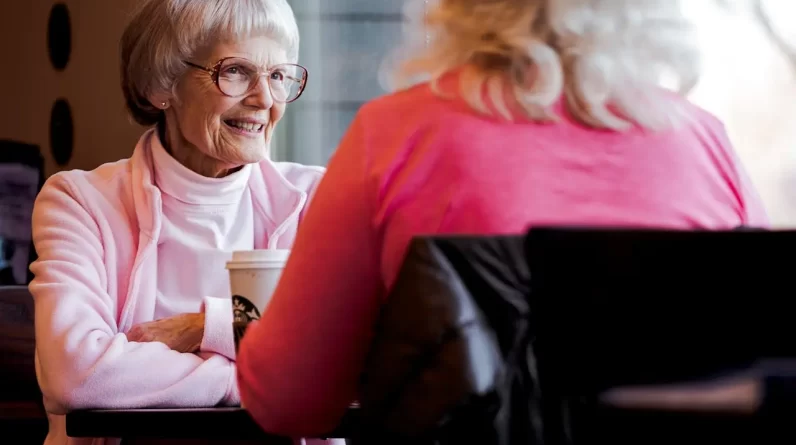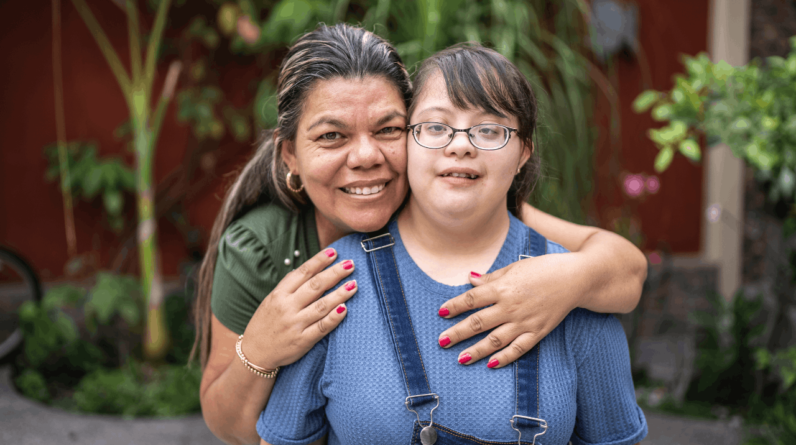
Social awareness can enhance our ability to socialize and connect.
But what happens when you lack this essential skill?
Well, in social situations, you might end up wondering:
- Did I miss an inside joke?
- Have I offended someone?
- Did I say the wrong thing?
- Why do I feel so disconnected from everyone else?
Without social awareness, everyday interactions can become a minefield of misunderstandings and awkward moments.
You might find yourself:
- consistently misreading situations
- saying the wrong thing at the wrong time
- struggling to connect with others on a deeper level
Ultimately, it can feel isolating, frustrating, and may even impact your personal and professional relationships.
But here’s some good news: Social awareness is a skill that can be developed and enhanced.
- But what exactly is social awareness?
- And why should you care about enhancing it?
Well, let’s take a closer look!
Without social awareness, everyday interactions can become a minefield of misunderstandings and awkward moments.
What is Social Awareness?
Social awareness is the ability to understand and interpret the emotions, needs, and concerns of other people.
It’s about being attuned to social cues, group dynamics, and the unspoken rules that govern different social situations.
All in all, social awareness involves:
- empathy
- active listening
- observation skills
- cultural competence
These components work together to help you understand and connect with others more effectively. So, below, let’s look at examples of social awareness and its benefits in more detail!
Examples of Social Awareness
Social awareness manifests in various ways in our daily lives.
You might recognize it when a colleague notices your stress and offers support, or when someone adapts their communication style to suit different audiences or cultures.
It’s also notable when someone diffuses tension in a group or understands the appropriate behavior for different social settings. Social awareness also involves picking up on subtle cues that someone is uncomfortable or disagreeing, even if they don’t explicitly say so.
It can further involve recognizing strengths in others or even curiosity for different perspectives or viewpoints. There’s so much it entails; maybe you already harness this skill but only now just noticed!
Benefits of Social Awareness
Developing strong social awareness can have many positive impacts on your life, including:
- Improved relationships
- Enhanced communication skills
- Better conflict resolution
- Career advancement
- Increased cultural sensitivity
- Improved emotional intelligence
- Enhanced decision-making
- Greater social influence
- Improved customer service
- Stronger personal boundaries
Beyond the social advantages, enhancing your social awareness can have significant mental health benefits, too.
As you become more adept at reading social cues, you may experience reduced anxiety in social situations. This is largely because understanding others often leads to increased self-awareness and improved emotional regulation.
Social awareness can also help you build a stronger support network, which is crucial for mental well-being and enhances your resilience.
Better social skills often lead to more satisfying relationships and a sense of belonging, reducing feelings of loneliness. Additionally, the increased empathy and compassion that come with social awareness are linked to higher levels of happiness and life satisfaction.
How Do You Develop Social Awareness?
Since it’s a skill, social awareness can be worked on. In fact, many people do. And here’s how you can, too.
10 Ways to Develop Social Awareness
1. Practice Active Listening
This means focusing entirely on the speaker without interrupting and truly seeking to understand the speaker’s message.
You can even ask clarifying questions like, “what do you mean about…” or, “can you tell me more about that?” to ensure you understand and reflect on what’s been said before responding.
2. Observe Non-verbal Cues
Pay attention to body language, facial expressions, and tone of voice.
Notice discrepancies between what people say and these non-verbal signals. This skill will help you understand the full message being communicated, beyond just the words being spoken.
Reading Body Language: How to Improve Your Ability to Read Nonverbal Communication
3. Develop Empathy
Empathy essentially involves trying to put yourself in others’ shoes.
Reading fiction has been shown to increase empathy, so consider incorporating more novels into your reading list. Volunteering or engaging in community service can also expose you to diverse perspectives and help you develop a more empathetic outlook.
4. Improve Your Emotional Intelligence
Work on recognizing and managing your own emotions.
Practice naming emotions you observe in others (and yourself!). Reflect on how your emotions influence your behavior and decisions. Higher emotional intelligence allows for better social interactions and understanding.
Related Article: 5 Ways You Can Effectively Deal With People Who Lack Empathy
5. Seek Diverse Experiences
Engage with people from different backgrounds and cultures.
If possible, traveling can further help broaden your cultural understanding and open your mind. Alternatively, you could consider attending cultural events or joining diverse community groups.
6. Ask for Feedback
Request honest input from friends, family, or colleagues about your social skills.
Be open to constructive criticism and use it as a learning opportunity. This practice helps you identify blind spots in your social awareness that you might not notice on your own.
7. Practice Mindfulness
Mindfulness helps us bring our attention to the present moment.
So, pay attention to your surroundings and those in them without judgment. Being mindful can enhance your ability to pick up on subtle social cues and remain present.
It can also help you build empathy, reduce anxiety, and so much more!
Related Article: Your Ultimate Mindfulness Guide: Become More Happy and Less Stressed
8. Study Human Behavior
Seriously! Read books on psychology and social dynamics.
Observe people in public spaces (respectfully) to learn about different interaction styles. Understanding the basics of human behavior can provide valuable insights into social interactions and help you learn and even understand yourself and others.
9. Keep a Social Awareness Journal
For those who love journaling, you may want to reflect on your daily social interactions.
Note any misunderstandings or successful communications and what you learned from them. Journaling can help you track your progress and identify areas for improvement!
10. Use Technology Mindfully
While social media can connect us, it can also hinder real-world social skills.
Practice face-to-face interactions and limit screen time when socializing. If you find reaching for your phone is a problem, you may even want to consider set times to go without your phone or social media.
You may also want to consider doing a digital detox.
Keep in Mind That Developing Social Awareness is an Ongoing Process….
It’s normal to make mistakes or misread situations occasionally. However, how we handle them is of the utmost importance. The key is to learn from these experiences and continue to grow.
As you enhance your social awareness, you may find that your:
- relationships become more fulfilling
- communication is more effective
- overall sense of well-being is improved
This skill not only benefits you personally, but also contributes to creating a more empathetic and understanding society.
Read Next: Digital Detox Challenge: Put Down Your Devices!
Photo by Brett Sayles







